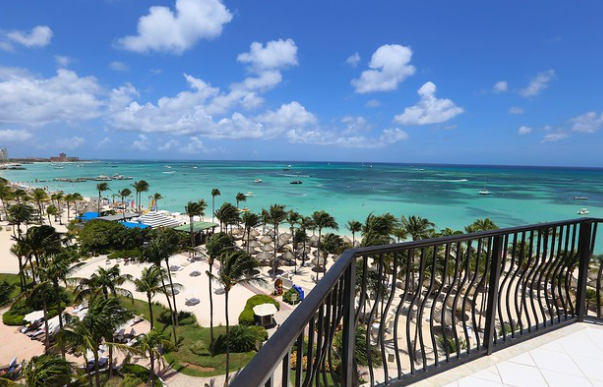On March 6, 2025, college student Sudiksha Konanki’s story went public after she was reported missing from the Riu Republica resort in the Dominican Republic. Konanki was last seen on surveillance footage at 4:15 a.m. entering a beach on the resort with seven others. Officials say after that, she appeared to have stayed behind on the beach with a man in his 20s. After extensive analysis and searching with no results, Konanki’s parents requested that the police declare her dead and put the search to rest. While we mourn the loss of Konanki, along with the many other students who have undergone similar circumstances, college students should take this tragedy as a warning to be vigilant while traveling.
It’s understandable that after a chaotic and work-filled semester, students want to kick back, relax and enjoy a vacation with their friends. However, there are many ways this can be accomplished while still being safe and aware of your surroundings.
Much too often, college students flock to foreign countries for spring break and don’t return, and there are various factors that play into this. Naturally, spring break is a big party scene, filled with alcoholic beverages and other impairing substances. While it’s unreasonable to caution students ages 21 or older to completely refrain from participating in these activities, there needs to be more emphasis placed on being mindful of their actions and environment.
Often in these cases, we see students going off alone with strangers, drinking to the point of near unconsciousness and being left alone by friends. Each of these factors alone is dangerous, and combined, they create a recipe for disaster. In any situation, there is always something that could go wrong, but these risks are significantly heightened in countries that you are unfamiliar with. Young adults become overconfident in how safe they really are and engage in habits they regularly do at home without thinking twice. They underestimate the potential consequences that can ensue such as human trafficking, kidnapping, drowning and sexual assault.
Konanki is not the only student who has fallen victim to these tragedies. Natalee Ann Holloway, an 18-year-old American high school graduate, went on a graduation trip to Aruba with her classmates. On the last day there, she disappeared after leaving the bar with a group of people and never returned. Her disappearance resulted in an international media sensation, yet this same situation continues to happen today.
Although it did not occur in a foreign country, a similar tragedy took place on March 8, 2024, when University of Missouri student Riley Strain was on a fraternity trip in Nashville. After being asked to leave Luke’s 32 Bridge Food + Drink, a bar on Broadway, Strain became separated from his friends and was last seen on surveillance footage walking towards Gay Street near the river. Strain’s body was discovered in the Cumberland River in West Nashville two weeks later where they revealed that he died from drowning and ethanol intoxication. Shortly after, Strain’s family filed a wrongful death lawsuit against his fraternity, Delta Chi.
These victims are not at fault, but the risks of their disappearances or deaths could have been lowered with the correct safety precautions.
It is essential that during trips to come, students acknowledge the risks and plan ahead. For instance, throughout the entirety of a trip, even in places like the airport, students must take a headcount of their friends and stick together. When going out at night, as the scene gets more chaotic, precautions such as making sure phones are charged, locations are on and designated meeting spots are discussed prior are not negotiable. Additionally, if you’re staying at a resort and are aware that the surrounding area is unsafe, then do not attempt to venture there under any circumstance.
While it’s difficult for many to fully refrain from partying and drinking, they must know their limits. Getting black-out drunk is highly irresponsible and can result in unintended consequences as one can no longer make rational decisions for themselves or supervise their friends. Young adults should constantly be in a state where they are responsive to what’s going on and capable of avoiding any dangerous situations.
Vacations are not the only times when these precautions should be taken, although they are instances where precautions are extremely necessary. In many cases, acting irresponsibly and leaving friends unsupervised on a night out, even in an area you’re familiar with, can be just as dangerous—tragedies can happen anywhere.
At the end of the day, while we understand that many college students and even people in their young adulthood simply want to go out and have fun, having a good time cannot be achieved without some level of coherence and responsibility. Whether it be on a trip or in a college hometown, taking the proper measures to be safe is much better than being sorry.
Photo credit: “Aruba Marriott Resort” by Daniel Gillaspiais is linked under (CC BY 2.0)







